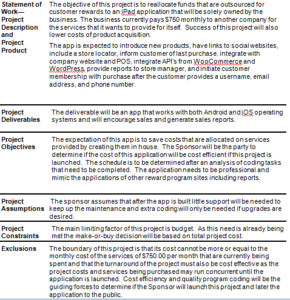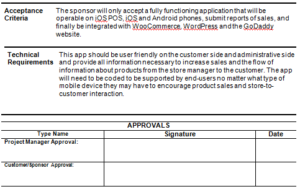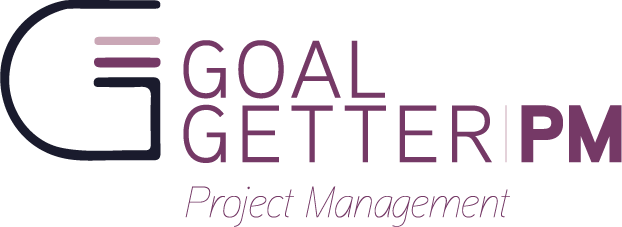
Welcome to the continuation of Project “I Want An App”! Just to recap from the previous post: I met with a friend that said that an app was needed for business. We further discussed the need. The business owner already has a shared app, however, the it still points customers to the competition.
In this post I summarize what happened at the meeting with my favorite “Code Monkey”. The keyword for this conversation: LEVERAGE.
I knew that after the initial meeting with the business owner that I needed an experienced developer to weigh in on his objectives. I also just wanted to get some insider information on how the whole project would come together. As you may already know, this is the technique of expert knowledge. That is one thing I love about project management: it encourages research from experienced people. So as I was once told, “If you don’t know, you better ask somebody!”
I approached the situation using another PM tool called the Scope Statement. I know the first step is usually the business case, however I found this template and thought it would be a great way to at least get something in writing to present to the business owner to start objective-based dialogue. Below are the snippets I brought to the developer that I created from the initial meeting notes with the business owner and other staff.


I will add here that I had sent a draft of this to the business owner as well. He had not had a chance to look at it before I met with the code monkey. That was acceptable because I knew there was a chance that the scope could change after I received the expert knowledge I was seeking.
I shared the scope statement with the developer to get some analysis on what tasks we may need to put in the Work Breakdown Structure. Wow, did I get ahead of myself!
The first thing the developer let me know was that business could be lost due to the new app for several reasons. He then explained that the it will need to be pieced together if one already didn’t exist for his business needs. One key thing to note here is that if you build an app it is going to cost more, and if you buy an app it is going to cost more. Let me explain. When you build an app you may start with a budget, but major changes that increase scope could cause the app to cost more, and the same applies to the purchase of an app. If you chose an expensive developer, the app is going to cost more; and if you choose a more expensive preexisting app; you guessed it – it will cost more. And on the subject of cost, much consideration will need to go into the cost of ownership in general.
The developer wanted me to go back to the business owner with many questions. What reward does the current app give the business owner? What improvements should be added to the current app or likeness thereof to another app? I know that you may be reading this because you may not have an app right now, and see it fit to have one in the future. It is important to check out a competitors app and ask these questions before you even get started on your own.
Leverage of an App
So let’s talk about the most important word of this post: leverage. The developer told me to go back and ask what is being leveraged for the current app. Also the question: what is not being leveraged? For those of you reading you may need to change that to: what are you willing to leverage and what is the limit of the leverage you are willing to provide?
BusinessDictionary.com defines leverage as: “The ability to influence a system, or an environment, in a way that multiplies the outcome of one’s efforts without a corresponding increase in the consumption of resources.”
Potential app owners need to ask themselves where are the funds coming from to get return on an investment? Knowing the answer to this question can really aid in establishing the budget and set the expectation on profits gained. This should be the very first question you should ask yourself before attempting to acquire an app. If you are able, you may also investigate how much your competition is spending. Some apps will show what company powers it. Simply researching those prices and seeking out their reports on the results can give you a realistic idea to compare what they are paying in comparison to what they are receiving in return of those efforts. The use of benchmark analysis is great when deciding leverage for many organizational project, and especially in the make-or-buy decisions revolving around making an app.
I really hope this post was helpful. The next post will focus on needs assessment.
Image source: www.csewebsolutions.com
© Brianna Sudduth and GoalGetterPM.com, 2016. Unauthorized use and/or duplication of this material without express and written permission from this site’s author and/or owner is strictly prohibited. Excerpts and links may be used, provided that full and clear credit is given to Brianna Sudduth and GoalGetterPM.com with appropriate and specific direction to the original content.

This work is licensed under a Creative Commons Attribution-NoDerivatives 4.0 International License.
